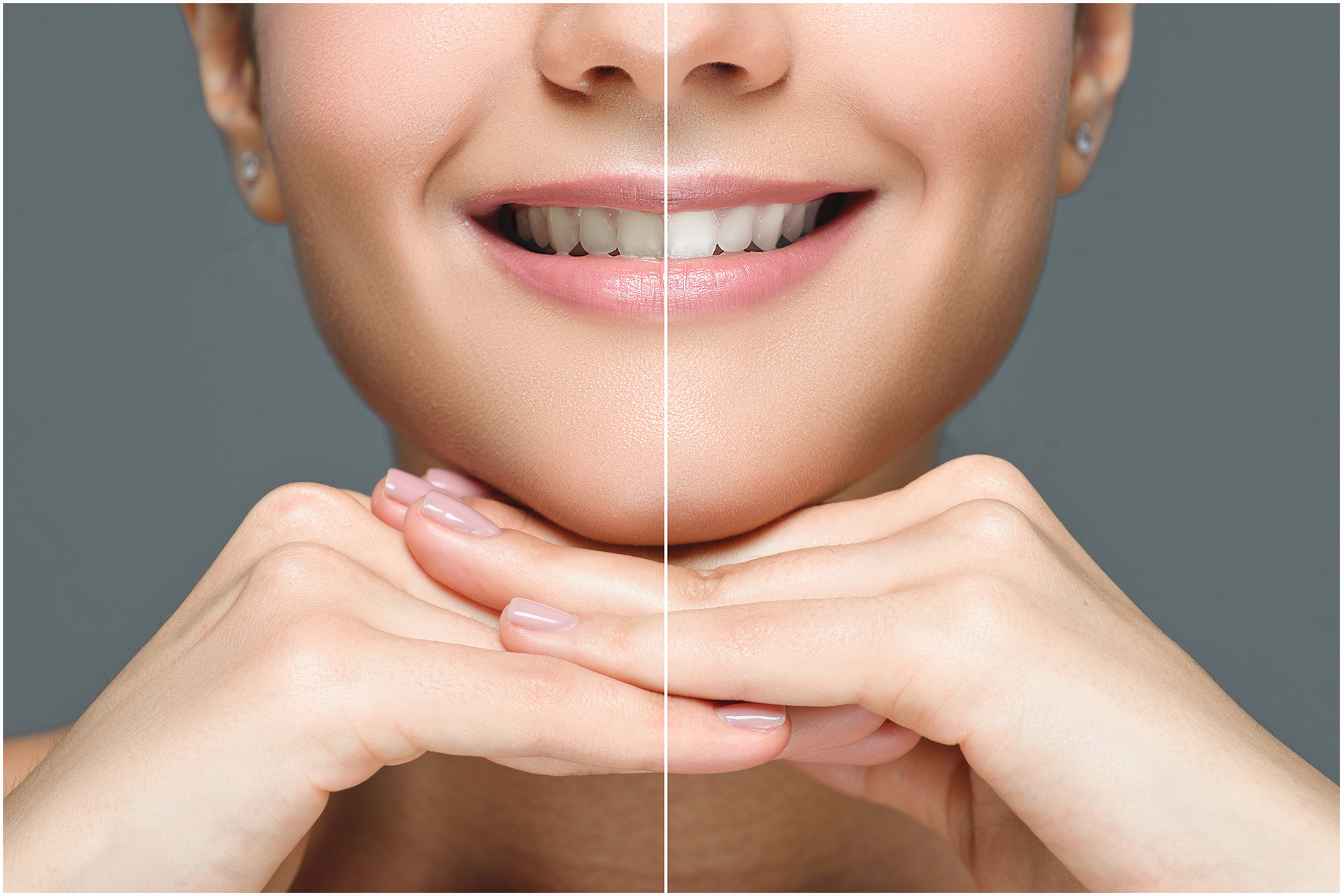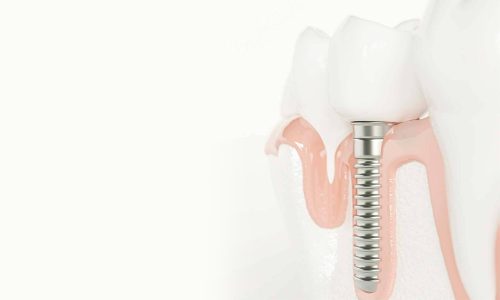
Almost everybody experiences teeth staining.
It occurs when you drink teeth-staining beverages like coffee, tea or red wine leading to teeth stains and discoloration over time.
Smoking or chewing tobacco and suffering from a dental injury can also lead to teeth discoloration.
Sometimes, the causes of teeth discoloration are not under your control.
As you age, your enamel starts to become thinner, causing your teeth to appear more yellow.
When this happens, teeth whitening treatment helps remove the teeth stains from the tooth surface and lightens the shade of your teeth, allowing you to achieve a beautiful and bright smile.
How Teeth Whitening Works
Teeth whitening products make use of a variety of peroxides containing oxygen molecules.
When oxygen molecules get in contact with a stain on the teeth’s surface, the bonds between the enamel and the teeth stain will start to break down, revealing a brighter smile after treatment is complete.
The demand for professional teeth whitening is still rising because nearly everyone will experience staining or tooth discoloration at some point in their lives.
Thus, it is one of the simplest but most effective types of cosmetic dentistry.
Professional teeth whitening can help you instantly achieve your whiter smile, but you might want to ensure that you are a good candidate for teeth whitening first.
There are a lot of benefits that you can reap when you get teeth whitening treatment.
Learning if you are a good candidate for this cosmetic dentistry treatment is necessary.
Are you still wondering if you are a good candidate or not?
Let’s find out!
Who Is a Good Candidate for Professional Teeth Whitening?
A good candidate for a professional teeth whitening procedure has to pass on the following criteria.
- A patient with healthy teeth and gum tissue
Healthy teeth and gum tissue are required before performing a teeth whitening procedure.
Adding these as part of the criteria could prevent teeth sensitivity or gum damage during the treatment.
- People with few or no fillings
Patients with few to no fillings are most likely to benefit from this procedure as teeth whitening works only on the natural teeth.
- Tobacco users, tea and coffee drinkers
These people usually got their stains from dietary habits and could benefit from this procedure.
This type of stain is called extrinsic stain, which appears to be more yellow and sometimes yellow/brown.
Extrinsic Teeth Stains
These stains occur on the outermost surface of your teeth, which is the easiest to lighten and remove.
However, heavy smokers and coffee and tea lovers are less likely to receive better results unless they will discontinue the habit during the teeth whitening process.
Intrinsic stains
It is another type of teeth stain that rests below the surface of the tooth enamel. This type of stain appears grey-brown or grayish. It is the colour that is hardest to remove from the tooth tissue.
Thus, this would require more gel applications because it needs to pass through the pore of your enamel and into your tooth dentin. To reach your desired whitening result, monitoring your eating, drinking, and smoking habit are needed.
Who Is Not a Good Candidate for Professional Teeth Whitening?
Professional teeth whitening can have advantages. However, there are some cases in which someone may not qualify as a good candidate, such as:
- Patients who have chronic sensitive teeth.
If you have sensitive teeth, consult your dentist first, as you may not be a good candidate for teeth whitening.
Whitening solutions could irritate your existing sensitive teeth which may cause further discomfort or damage.
- Patients who have gum disease
Undergoing teeth whitening treatments while having gum disease can lead to discomfort, pain, irritation and further damage to the structures that support teeth.
It is advisable to treat your existing gum disease first before proceeding with a teeth whitening treatment.
- Pregnant patients or lactating women
Pregnant or breastfeeding women may not be recommended to undergo teeth whitening procedures and should wait until they give birth and have finished breastfeeding before undergoing teeth whitening services.
The reason is that an active ingredient in the whitening gel, peroxide is harmful if accidentally swallowed. Pregnant patients will have to delay the teeth whitening procedure because they might have unexpected side effects or an allergic reaction upon taking this treatment.
- Patients who are allergic to peroxide
If you are allergic to peroxide, you will not be able to have your teeth whitening procedure since peroxide is the active ingredient in the whitening systems.
- Patients with veneers, dental crowns or bridges
During the teeth whitening procedure, only your natural teeth will whiten. Any restorative work like dental crowns, veneers, composite fillings, and dental bridges will not whiten during the process.
It could result in a very uneven appearance of your teeth. If you have some fillings or other restorative work done, you may need to consult your dentist before getting any professional teeth whitening done.
- Children under 16 years of age
If you are below 16 years of age, you are not a candidate for teeth whitening. One of the reasons is that when you are young, you do not have all of your permanent teeth yet, so it’s best not to undergo professional teeth whitening treatment until there are no longer any baby teeth and when your adult teeth are present.
Also, If young patients start bleaching teeth at such a young age, the teeth may become brittle over time.
Tooth For Thought
Professional teeth whitening can guarantee an instant whitening result. Remember that your teeth will not usually end up being super-white. Knowing if you are the right candidate will help you set realistic expectations for this treatment. If you want to see if you are a great candidate for teeth whitening, you can book a consultation with us today.


